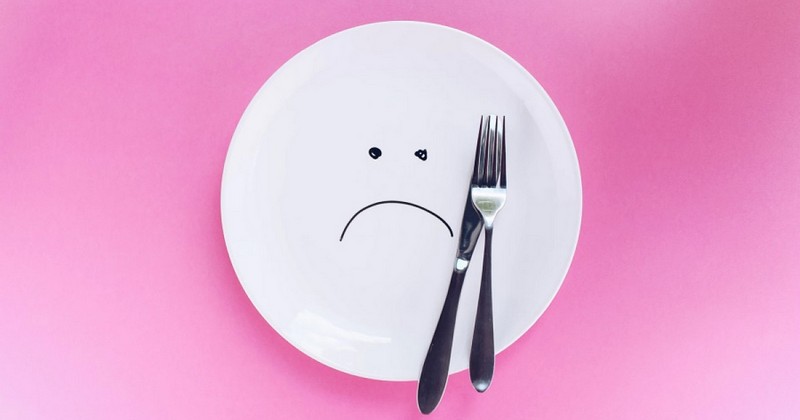Emotional hunger: what is it and what can be done to combat it?

This phenomenon can be confused with physical hunger but it has nothing to do with lack of food.
One day someone told me that there will always be people with obesity, and although he mentioned it in a work context, the reality is that this phrase, besides being true, is not at all encouraging.
According to the National Health and Nutrition Survey (ENSANUT), in 2016 73% of the adult population in Mexico was already overweight or obese; ranking second in the world behind the United States, according to the Organization for Economic Cooperation and Development (OECD).
It is known that the problem lies in the type of food we eat, the frequency and quantities. However, there is a factor that, in some way, interferes in the art of good eating, since we do not always eat because we really feel hungry, sometimes we do it to cover up certain emotions. The latter is known as emotional hunger or emotional eating..
Difference between physiological hunger and emotional hunger
The physical or physiological hunger, once it appears, tends to increase gradually and can be satisfied with any type of food, so that healthy food choices can be made without problems.. Once you eat, you do not need more, as you experience the feeling of satiety.
In contrast, emotional hunger comes on suddenly with a desire to eat a specific food, and you can satisfy it with any type of food, so you can choose a healthy meal without problems.However, once you manage to satisfy the craving, that apparent "hunger" does not go away, because you want to keep eating.
The relationship between hunger and emotions
From an early age, consciously or unconsciously, we associate food with emotions. For example, a baby's feeling of security when drinking his or her milk in mom or dad's arms; the rewards of sweets or unhealthy food for having obtained an achievement, whether it is good behavior or high grades. There is even a popular phrase that says: "sorrows with bread are less", so we learn that sadness, abandonment, resentment, among others, are reduced by eating.
In situations of sadness or happiness, food can activate reactions in the brain that are pleasurable.. An example of this are chocolates, which trigger a compound called phenylethylamine, which generates a state of well-being; in addition, chocolate releases endorphins and serotonin, so it is considered a natural antidepressant.
Filling the void
As mentioned above, this is not a real feeling of hunger, but the unconscious desire to fill a void, which is not in your stomach... it is an emotional discomfort. In this case, the person cannot take care of this discomfortIn this case, the person cannot take charge of this discomfort, because sometimes he is not aware of it, so he confuses this sensation with hunger and tries to compensate it by eating.
On the other hand, there are occasions in which the person manages to be aware of these specific emotions, but has not made the decision to deal with them, so this dissatisfaction continues.
Perhaps if the person questioned himself about the hunger he feels, he could come to the conclusion that it could be hunger for affection, needing a hug; perhaps fear of being abandoned, feeling alone, being rejected; or simply or simply being going through a moment of great worry or anxiety.. No matter how hard you try, it is something that food can never satiate, and consequently contributes to weight gain and provokes feelings of guilt.
How to satiate emotional hunger
The first step may be to realize what you are feeling or thinking at that moment when you are not satisfied; maybe you are going through a situation in your life that generates worry, sadness, stress, happiness. Put a name to what you are feeling, discover what thoughts invade your mind, and what need you have at that moment.
Go to a nutritionist. When it comes to food, it is necessary to learn which are the right portions for you, as well as to keep track of the times you have to eat.You should also keep track of the times when you have to eat. That way, you will be able to identify more easily when emotions begin to be confused with hunger.
Exercise. This will allow you, in addition to improving your health, discharge negative emotions such as stress and anxiety.. It also works as a natural antidepressant, as it releases endorphins and serotonin that improve your mood. Seek help to work through that emotional discomfort. You can start by sharing it with someone you trust; if the problem persists, do not hesitate to go to a psychologist, who will provide you with the necessary help.
The main thing in this matter is to pay attention to the emotional needs you may have. Otherwise you give your body an over intake of food, which ends up being detrimental to your health. Listen to your body and attend to its needs. Give your emotional area the importance it requires, so that you find the well-being you deserve.
Author: Psychologist Angel Ximenez.
Bibliographical references:
- NOTIMEX (2018). Obesity in Mexico, a problem of major gravity: FAO. Excélsior.
- OMENT (2017). Mexican Observatory of Noncommunicable Diseases. Retrieved November 11, 2018, from Observatorio Mexicano de Enfermedades No Transmisibles.
(Updated at Apr 13 / 2024)